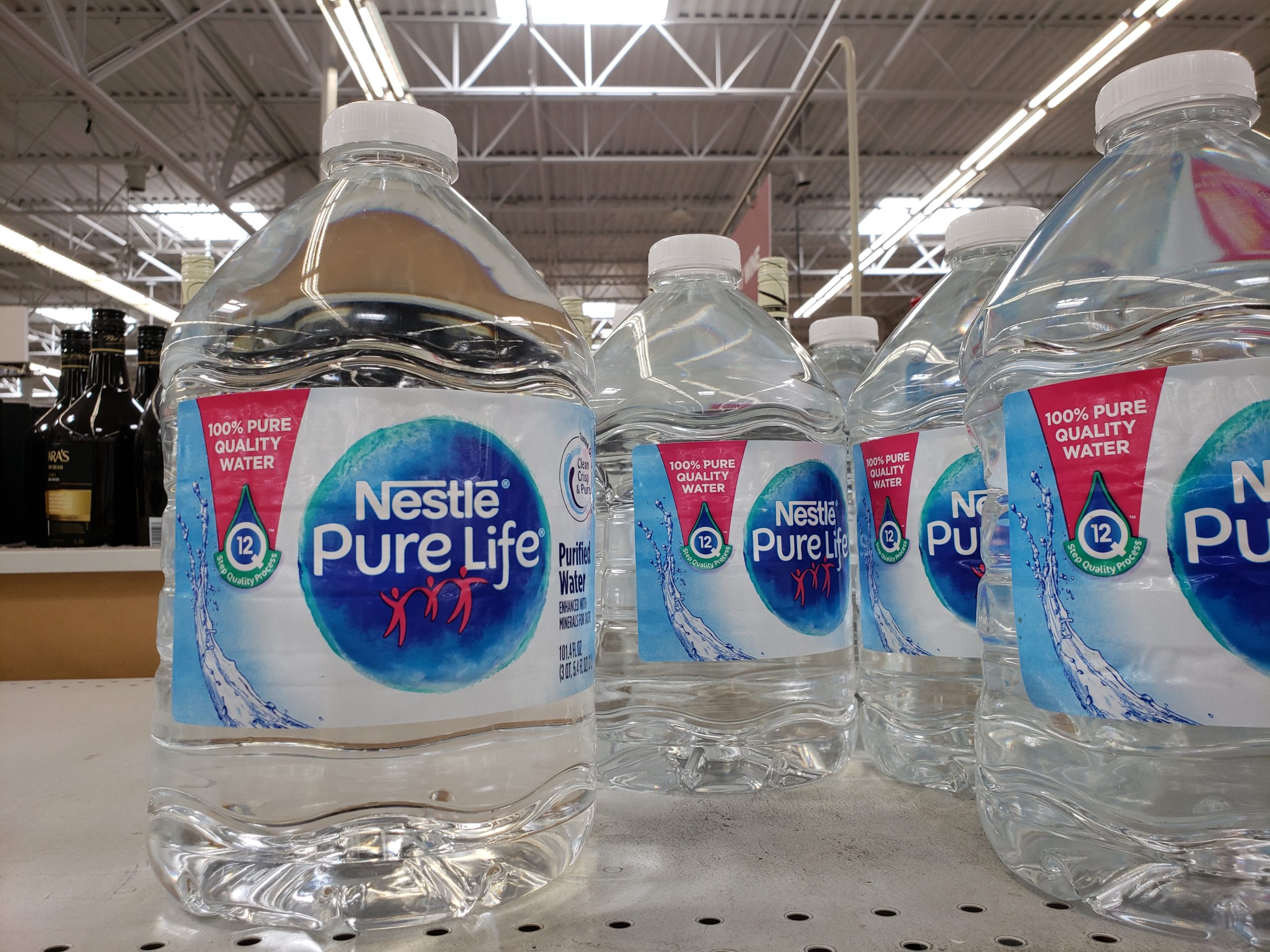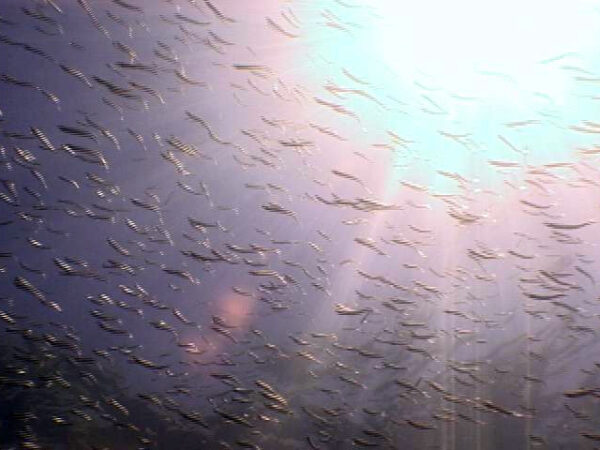
Water conservation advocacy groups in Michigan expressed outrage over the state’s recent dismissal of their appeal of the decision allowing Nestle Waters North America to increase the amount of groundwater it was withdrawing for bottled water.
Nestle received the greenlight for additional withdrawals in 2018 under the administration of former Gov. Rick Snyder, in spite of an overwhelming number of public comments opposed to the increased withdrawals.
Advocacy group Michigan Citizens for Water Conservation and the Grand Traverse Band of Ottawa and Chippewa Indians appealed the 2018 decision in a process known as a contested case. But following a two-year process, they were told by the Department of Environment, Great Lakes, and Energy that they had erred in filing the contested case with the agency.
“EGLE found that the (plaintiffs) Michigan Citizens for Water Conservation and the Grand Traverse Band of Ottawa and Chippewa Indians erred in not appealing the permit directly to circuit court,” the agency said in a press release announcing the decision.
MCWC and GTB expressed outrage about the two-year process that led to being told they erred in their choice of venue.
“The slap in the face we received November 20th was an assault on all those who expect government agencies to serve in the public trust and protect natural resources for future generations,” MCWC said in a press release reacting to the decision.
Co-plaintiff GTB expressed similar frustration.
“Completely overlooked in EGLE’s decision is the duty arising under the 1836 Treaty, which enabled Michigan’s statehood in 1837. Michigan has a duty to protect the Tribes’ treaty-reserved resources from diminishment,” Bill Rastetter, tribal attorney for the GTB told Great Lakes Now.
EGLE Director Liesl Clark, who signed the final decision and order that dismissed the case, was singled out for criticism.
“Director Clark should be ashamed to have followed staff’s flawed advice without consideration of the Grand Traverse Band’s (and other Indian Tribes’) treaty-reserved rights,” Rastetter said.
Rastetter pointed to an October 2019 executive directive issued by Gov. Gretchen Whitmer that “requires that each state department and agency adopt a formal tribal consultation policy.”
EGLE spokesperson Scott Dean defended the decision.
“EGLE is obligated to implement statute, and this decision reflects EGLE’s understanding of the relevant laws both from a substantive and procedural point of view,” Dean said in an email to Great Lakes Now.
Undeterred
Undeterred by the setback, MCWC is renewing a previous request for Attorney General Dana Nessel to investigate.
MCWC had written to Nessel in July but didn’t receive a response, according to the group’s president, Peggy Case, who said “we will first be pursuing the formal complaint we filed by registered letter with the Attorney General back in July.
The letter said it is “imperative” that the attorney general enforce the Michigan Constitution and laws designed to protect natural resources.
Case said MCWC will be calling on the attorney general to conduct an investigation of the damage done to the ecosystem where Nestle draws its water near Evart.
“We want Nessel to look at this just as she looked at the behavior of Enbridge and not pass it back to EGLE where it will be dismissed by the holdover staff of the Snyder administration and those still defending the permit,” Case said.
“The Department of Attorney General was made aware of the Michigan Citizens for Water Conservation’s complaint initially through a media inquiry that forwarded the complaint and press release, and we responded with a public statement of the Attorney General’s position,” spokesperson Ryan Jarvi told Great Lakes Now in an email.
Jarvi said the attorney general believes current water withdrawal regulations need to be strengthened but the Nestle case is within EGLE’s authority to review.
GTB has not yet made a determination on how to proceed, according to Rastetter.
The Michigan Environmental Council’s Tom Zimnicki expressed surprise that it took EGLE two years to come up with this decision since the department only reviewed the procedural aspects of this case.
He also thought EGLE should have addressed the substance of the plaintiff’s complaint.
“I think (EGLE) could have done more in this instance to defend the technical aspects of its permitting process, and at the same time elevate the need for greater investment by the legislature into the tools and methods used for granting or denying water withdrawal permits in Michigan,” Zimnicki said.
Zimnicki is MEC’s program director for groundwater and also serves on EGLE’s Water Use Advisory Council.
National water advocacy group Food and Water Watch praised the plaintiffs for challenging Nestle and its senior organizer, Rianna Eckel, said EGLE’s decision “is a setback, but it is not the end.”
Eckel put the water withdrawal issue in the context of COVID-19 and water shutoffs.
“Michigan made the wrong decision by allowing Nestlé to increase their water withdrawals. As hundreds of thousands of Michiganders are at risk of losing water service during the pandemic, as they have fallen behind on their water bills, it is especially appalling that Michigan would allow Nestlé to profiteer off of one of our most basic human rights,” Eckel told Great Lakes Now in an email.
During her 2018 election campaign, Gov. Whitmer put a spotlight on water withdrawals for bottled water.
In the context of the Snyder administration’s approval of Nestle’s increased withdrawals, Whitmer said “… we need a way to control the siphoning of water for water bottling and my administration will work to see it done.”
Asked to reconcile her campaign pledge with EGLE’s decision, Whitmer’s communications director Tiffany Brown told Great Lakes Now:
“It’s clear that our water withdrawal program needs updating. EGLE called on the legislature to adopt several changes that the governor supports to prevent water bottlers from profiting off Michigan’s water resources, including establishing royalties to compensate Michiganders for the commercial use of our freshwater resources. Additionally, we need to see increases in the fees for water withdrawal applications and permits.”
Nestle Waters North America said in a statement, “we firmly believe that EGLE’s decision to approve our permit application was appropriate, as it carefully reviewed and considered our permit application in what it called “the most extensive analysis of any water withdrawal in Michigan history.”
Nestle remains opposed to the application of extraction taxes or similar fees that it said unjustly target the bottled water industry.
The complete ruling signed by EGLE Director Liesl Clark is linked here:
Read more news about Nestle and bottled water on Great Lakes Now:
Unchanged Mission: Activists say a Nestle Great Lakes exit doesn’t resolve bottled water issue
Nestle Prevails: Law judge sides with water bottler in water withdrawal case
Banned: Canada takes next step toward zero plastic waste by 2030
Featured image: Nestlé Pure Life (Photo Credit: Natasha Blakely)
1 Comment
-
Gary, thank you for your full description of the controversy and EGLE decision. To make sure readers fully understand the underlying issues that EGLE dodged by its odd decision, please post the legal Exceptions to the administrative law judge’s decision that MCWC and Grand Traverse Band field before Director Cark issued her decision. Thank you.




